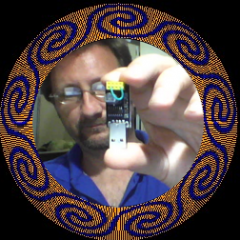While looking for a new WiFi manager for my SmartPoi project, I stumbled upon a great resource: https://www.arduinolibraries.info/architectures/esp8266 – a list of Arduino libraries broken down by architecture.
Just having a quick look, I have noticed some great libraries to help improve my ESP8266 based projects (I haven’t had a chance to look at these yet, but looking forward to it!):
some interesting esp8266 libraries:
- https://www.arduinolibraries.info/libraries/esp8266-timer-interrupt
– interrupts for ESP8266! So useful. - https://www.arduinolibraries.info/libraries/esp_eeprom
– Speed up EEProm and add wear levelling - https://www.arduinolibraries.info/libraries/firebase-esp8266-client
– Firebase? On ESP8266? Sounds like a challenge! - https://www.arduinolibraries.info/libraries/mini-grafx
– graphics library, not sure which displays this supports… - https://www.arduinolibraries.info/libraries/process-scheduler
– process scheduler, is this easy to use though? - https://www.arduinolibraries.info/libraries/restfully
– hopefully this is better than doing it manually - https://www.arduinolibraries.info/libraries/rich-http-server
– more http requests wrappers - https://www.arduinolibraries.info/libraries/settings-manager
– store settings in .json - too many WiFi config libraries to list here, I saw at least 15!
These are only the few I was interested in personally, the site lists 244 libraries for ESP8266. Check it out!
